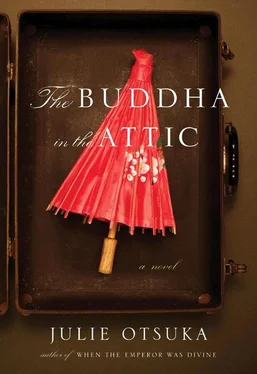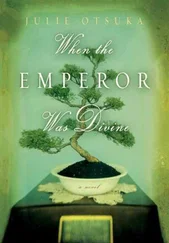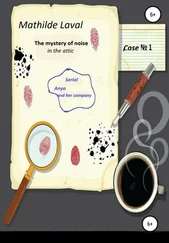AT THREE in the morning one of our most prominent berry growers was dragged out of bed and escorted out his front door. He was the first of the men we knew to be taken away. They’re only going after the wealthy farmers , people said. The following evening a local field hand at the Spiegl Ranch was picked up in his muddy overalls while walking his dog by the reservoir and questioned for three days and three nights in a brightly lit room with no windows before being told he could go home. But when his wife drove down to the station to get him he had no idea who she was. He thought I was an impostor who was trying to get him to talk . The next day three women we knew in a nearby town came forward to report that their husbands, too, had been on the list. “They put him in a car,” one of them said, “and he was gone.” Two days later, one of our competitors—the only other rancher in the valley whose raisin grapes were even half as sweet as ours—was handcuffed to a chair in his kitchen for four hours while three men searched his house and then he was allowed to go free. His wife, people said, had served the men coffee and pie. And we all wanted to know: What kind of pie? Strawberry? Rhubarb? Lemon meringue? And how did the men take their coffee? With sugar or without?
SOME NIGHTS our husbands lay awake for hours going over their pasts again and again, searching for proof that their names, too, might be on the list. Surely there must be something they had said, or done, surely there must be some mistake they had made, surely they must be guilty of something , some obscure crime, perhaps, of which they were not even aware. Only what, they asked us, could that obscure crime be? Was it that toast they had given to our homeland at last year’s annual summer picnic? Or some remark they may have made about the President’s most recent speech? He called us gangsters . Or had they made a contribution to the wrong charity—a charity whose secret ties to the enemy they knew nothing about? Could that be it? Or had somebody—somebody, no doubt, with a grudge—filed a false accusation against them with the authorities? One of our customers at the Capitol Laundry, perhaps, to whom we had once been unnecessarily curt? (Was it, then, all our fault?) Or a disgruntled neighbor whose flower bed our dog had made use of one too many times? Should they have been friendlier, our husbands asked us. Were their fields too unkempt? Had they kept too much to themselves? Or was their guilt written plainly, and for all the world to see, across their face? Was it their face, in fact, for which they were guilty? Did it fail to please in some way? Worse yet, did it offend?
IN JANUARY we were ordered to register with the authorities and turn over all items of contraband to our local police: guns, bombs, dynamite, cameras, binoculars, knives with blades longer than six inches, signaling devices such as flashlights and flares, anything that might be used to assist the enemy in the event of an attack. Then came the travel restrictions—no people of our ancestry allowed to travel more than five miles from their homes—and the 8:00 p.m. curfew, and even though most of us were not really night people, for the first time in our lives we found ourselves longing to take the occasional midnight stroll. Just once, with my husband, through the almond groves, to know what it’s like . But at two in the morning when we looked out our windows and saw our friends and neighbors raiding our barns we did not dare set foot out our front doors, for fear that we, too, would be turned in to the police. Because all it took, we knew, was one phone call to get your name on the list. And when our older sons began staying out all night downtown on Saturdays we did not ask them where they had been when they came home late the next morning, or who they had been with, or how much she had cost, or why they were wearing I Am Chinese buttons pinned to the collars of their shirts. “Let them have their fun while they can,” our husbands said to us. So we wished our sons a civil good morning in the kitchen— Eggs or coffee? —and got on with our day.
“WHEN I’M GONE,” our husbands said to us. We said to them, “If.” They said, “Remember to tip the iceman,” and “Always greet the customers by name when they come through the door.” They told us where to find the children’s birth certificates, and when to ask Pete at the garage to rotate the wheels on the truck. “If you run out of money,” they said to us, “sell the tractor.” “Sell the greenhouse.” “Sell off all the merchandise in the store.” They reminded us to watch our posture— Shoulders back —and not let the children slip up on their chores. They said, “Stay in touch with Mr. Hauer at the Berry Growers’ Association. He is a useful person to know and may be able to help you.” They said, “Believe nothing you hear about me.” And, “Trust no one.” And, “Don’t tell the neighbors a thing.” They said, “Don’t worry about the mice in the ceiling. I’ll take care of them when I come home.” They reminded us to carry our alien identification cards with us whenever we left the house and avoid all public discussion of the war. If asked, however, to give our opinion, we were to denounce the attack loudly, in a no-nonsense tone of voice. “Do not apologize,” they said to us. “Speak only English.” “Suppress the urge to bow.”
IN THE NEWSPAPERS, and on the radio, we began to hear talk of mass removals. House to Hold Hearings on National Defense Migration. Governor Urges President to Evacuate All Enemy Aliens from the Coast. Send Them Back to Tojo! It would happen gradually, we heard, over a period of weeks, if not months. None of us would be forced out overnight. We would be sent far away, to a point of our own choosing deep in the zone of the interior where we could not do anyone any harm. We would be held under protective custody arrest for the duration of the war. Only those of us who lived within one hundred miles of the coast would be removed. Only those of us on the list would be removed. Only those of us who were non-citizens would be removed. Our adult children would be allowed to remain behind to oversee our businesses and farms. Our businesses and farms would be confiscated and put up for auction. So start liquidating now . We would be separated from our younger children. We would be sterilized and deported at the earliest practicable date.
WE TRIED to think positive thoughts. If we finished ironing the laundry before midnight our husband’s name would be removed from the list. If we bought a ten-dollar war bond our children would be spared. If we sang “The Hemp-Winding Song” all the way through without making a mistake then there would be no list, no laundry, no war bonds, no war. Often, though, at the end of the day, we felt uneasy, as if there was something we had forgotten to do. Had we remembered to close the sluice gate? Turn off the stove? Feed the chickens? Feed the children? Tap the bedpost three times?
IN FEBRUARY the days grew slowly warmer and the first poppies bloomed bright orange in the hills. Our numbers continued to dwindle. Mineko’s husband was gone. Takeko’s husband was gone. Mitsue’s husband was gone. They found a bullet in the dirt behind his woodshed . Omiyo’s husband was pulled over on the highway for being out on the road five minutes after curfew. Hanayo’s husband was arrested at his own dinner table for reasons unknown. “The worst thing he ever did was get a parking ticket,” she said. And Shimako’s husband, a truck driver for the Union Fruit Company whom none of us had ever heard utter a word, was apprehended in the dairy aisle of the local grocery for being a spy for the enemy high command. “I knew it all along,” someone said. Someone else said, “Next time it could be you.”
Читать дальше












